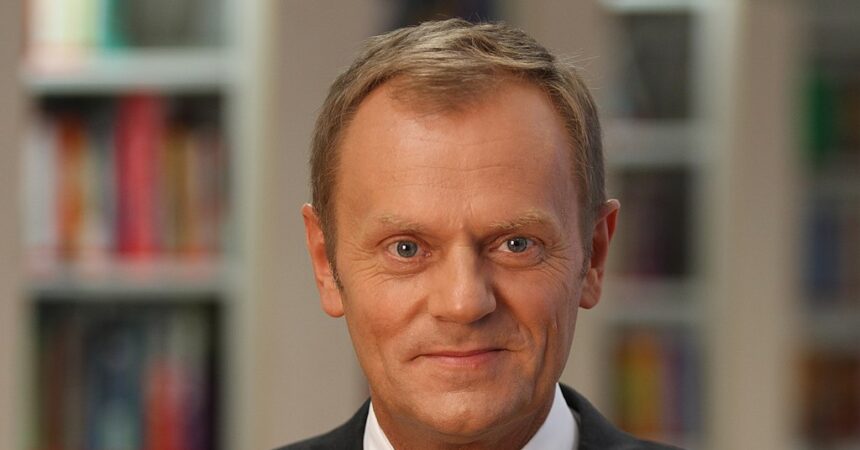One of the first acts of Poland’s new Prime Minister, Donald Tusk, was to replace the management of the country’s public media and its various corporate entities into liquidation in a bid to purge it of appointees put into position by the former Law and Justice (PiS) party, in a move deemed necessary by Reporters Without Borders.
Tusk, a former European Council president, and his Civic Platform party won the general elections in late 2023 on a ticket of restoring the rule of law following eight years of PiS rule during which the country clashed multiple times with the EU, media freedom suffered significantly, and democracy witnessed a backsliding.
Days after assuming office, Tusk instructed Culture Minister Bartlomiej Sienkiewicz to take state broadcaster TVP off the air, appointed new management of all state media, and set the cameras rolling again with the aim of “now giving voice to all sides and aiming to unite Poles rather than divide them,” according to presenter Jaroslaw Kulczycki.
RSF supported the Tusk government in a statement to Euractiv. Pavol Szalai, head of the Europe desk, said, “We understand that the Polish government had to act quickly, and there are no international best practices on the matter.”
He added that TVP was not a media but a propaganda organ for the former far-right PiS government, but said the government must be transparent and predictable regarding the media landscape.
“In this context, it is all the more important to be as transparent and predictable as possible to recreate trust in the media”, adding that it would be important to submit a roadmap involving experts, civil society and political parties.
According to him, Tusk’s government has a “historic opportunity to progress in press freedom in Poland.”
Tusk’s reforms also got rubber-stamped by the European Commission, despite a ruling from the PiS-created and politically appointed Polish Constitutional Tribunal that they were irregular.
“I am very pleased that the Polish authorities are determined to restore the rule of law in Poland, to ensure full compliance of their legislation not only with the Polish constitution but also with the requirements of EU law,” EU Justice Commissioner Didier Reynders told reporters in Warsaw on Friday (19 January).
The Commission disapproved of the tribunal and repeatedly asked PiS to dismantle it, accusing them of making it politically dependent on them.
PiS mouthpiece
The broadcaster- supposed to be public, independent, pluralistic, neutral, and provide balanced information to citizens, had increasingly been seen as a ‘mouthpiece’ for the PiS government. Stuffed full of political appointees, since PiS won the elections in 2015, the party has increasingly used it for its own purposes.
In 2019, three international and independent reports all found that TVP was biased and that individuals tasked with overseeing the state broadcaster included ruling party politicians in a flagrant breach of the Polish constitution.
The reports found that the broadcasters published almost exclusively positive reports about the government, while all stories about the opposition were negative. There was also a disproportionate amount of coverage given to PiS politicians, with seven out of ten of the most reported figures being from the party. Mentions of opposition figures, including Tusk, were exclusively negative.
Reports also found that government scandals and revelations of wrongdoing were completely censored or framed in the context of a “political attack” from the opposition.
The Polish Society of Journalists noted, “Public Television acted solely as a propaganda body for the ruling party. All of the electoral material on ‘Wiadomości’ promoted PiS electoral slogans or undermined the opposition’s position. Politicians from the ruling bloc had a huge advantage regarding access to viewers, and the captions for material read like quotes from speeches at PiS electoral rallies”.
The reforms enforced by the new government were met with resistance from PiS, who accused them of dismantling the rule of law and attacking the freedom of the media.
State-controlled PBS
In Malta, the Public Broadcasting Service (PBS), funded by taxpayers, was classified as ‘state-controlled‘ in an independent international study by the Centre for Media, Data, and Society.
It looked at the editorial independence of 546 state-administered media companies and found that the ruling party governed and controlled PBS and its editorial coverage.
RSF reported in 2023 that “The ruling party wields a strong influence over the public broadcaster”, while the 2023 Media Pluralism Monitor found a medium risk to media pluralism, with over half of the individual indicators pointing to high or very high-risk levels.
Concerns with PBS and TVM include a lack of editorial independence, censorship of scandals involving the ruling party, and appointing party loyalists into key positions, skewing the supposed independence.
Furthermore, concerns have been raised over a lack of transparency in how public funds are spent, employee contracts, how individuals are appointed, and violations of media freedom principles against activitsts.












